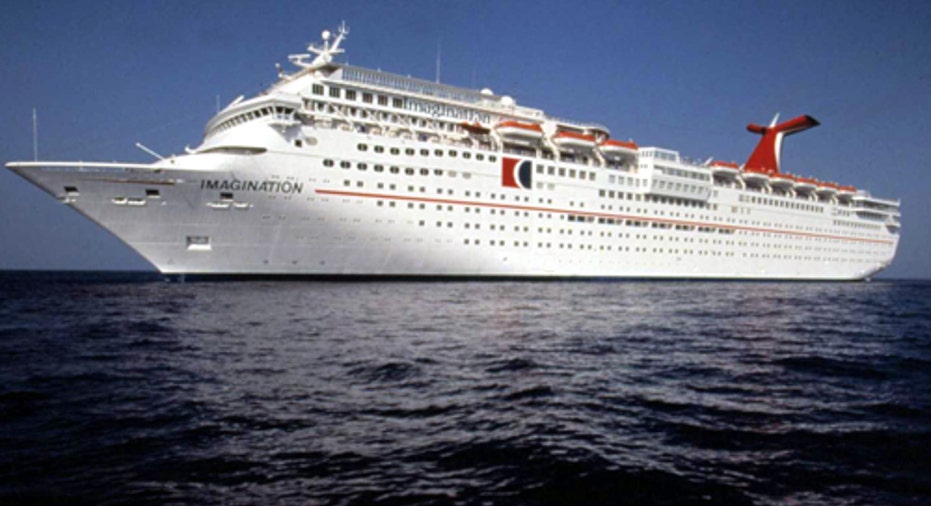The Hidden Costs of 'Cashless' Cruising

Going on a cruise soon? Given that the majority of cruise lines (and a few resorts) have gone to a "cashless" system, you can leave your dollars at the shore. But experts warn not to abandon your sense, too. An onboard cashless payment system means that cruise companies, such as Royal Caribbean and Carnival, permit guests to keep a running tab of drinks, services, shore excursions, gratuities and souvenirs with the swipe of a key card so cruisers don't have to open their wallet for cash for each transaction. Instead, they settle up the bill with a credit card on the last day of their vacation, also known as the day of reckoning -- a sobering experience for many a traveler after multiple days of daiquiris and spa treatments. "I have lived that story," says Carolyn Spencer Brown, editor-in-chief of CruiseCritic.com, a popular online forum for cruise enthusiasts. "We anticipate that we will probably spend half of what we pay for the cruise" in onboard charges.
"The cruise card isn't just a card," she says. "It unlocks your door, turns on your lights ... it's like a magical mystery card -- it can do anything but fly. And the cruise service is so good. You don't have to hunt down a bartender."
The intoxicating 'magic' of a cashless holiday
Sometimes that kind of magic gets people in trouble.
While Holland America estimates that the typical guest charges about $60 per person per day to their shipboard account, according to spokeswoman Melissa Mefford (and many cruise companies seek initial credit card authorization for this amount), some people have trouble reining in their spending.
Deb Fegan and her husband Joe, avid cruisers from New Hampshire, once witnessed a young man confronted by cruise personnel after running up a $3,000 tab, putting him over his credit limit. "Neither of us has ever encountered anything like that scene, and we agree that we'll never forget it," she says.
Royal Caribbean spokeswoman Lyan Sierra-Caro says that in a situation such as this, "If a guest is over their limit, they must provide another credit card/cash to cover their bill. Guests may not depart the ship without settling their bill." Bon voyage?
Karol Ward, an author and licensed clinical social worker in New York City, said cruise companies are playing into the psychology that people are more relaxed while on vacation. The final price tag of their trip is obscured. "It does invite overspending. It's set up to make the consumer feel like they can totally be free, but the downside of it is that it does disconnect the consumer from their spending," she said. Adding to the disconnection is that alcohol consumption tends to loosen inhibition, she said. "You might find yourself walking into a casino, or you want to go into the gift shop. It very quickly takes the lid off. Any kind of substance and money is a lethal combination."
Positive sides to going cashless, too
A cashless system isn't all bad news for consumers, however.
Brown said that with cruise prices "cheaper now than I've ever seen them," people can feel entitled to spend more freely while on board. She said that many vacationers prefer a la carte options while cruising. "Cruise lines are trying to appeal to all types of travelers and they want to give you options, but to give you options they have to manage that," Brown said. "You can't get everything for a $399 cruise."
Nondrinkers, for example, will realize quite a bit of savings off the typical cruise tab.
And even though "cashless" is widely encouraged, some companies do allow travelers to use alternative options to credit card payments. For example, Royal Caribbean allows guests to prepay with cash. "If this option is selected, a guest is able to put down a certain amount of cash when they arrive and use their SeaPass card until that amount has been reached," explains Sierra-Caro.
Carnival doesn't accept cash, but allows customers to pay by check or through a wire transfer.
Advice for cutting costs
Holland America's Mefford recommends that cost-conscious cruisers take advantage of specials and happy hours on the ship. "But also, enjoy free juice, coffee, iced tea and milk at breakfast in the restaurants," she said. "In-port spa specials ... generally offer 15% to 20% off signature treatments such as massage and facials. Beverage cards also offer discounted rates."
Brown's advice to cruisers is to consider pre-booking shore excursions and onboard spa treatments. Many cruise lines allow people to pay for these with a credit card before getting onboard, so your final bill won't be a jaw-dropper.
Another thing people can do is check their bill regularly. Companies often allow account access through a stateroom TV or by checking in with the purser's desk. "I personally don't want to see my bill every single day, but check it once or twice," Brown said. "I definitely don't recommend to wait until the last day to check your bill. If there's a mistake, it's you and 300 other people waiting in line."



















